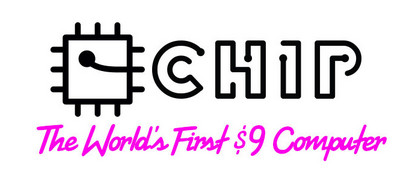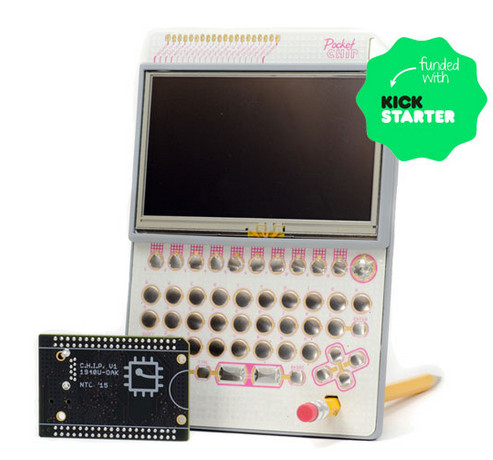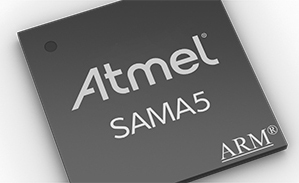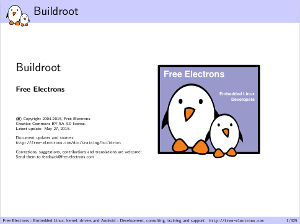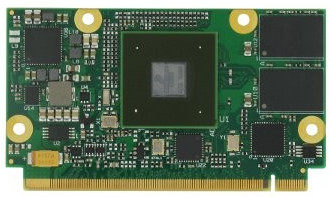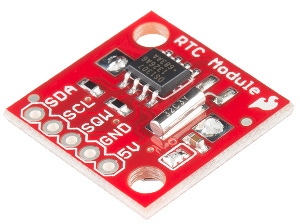 Linus Torvalds recently released the 4.1 Linux kernel, for which LWN.net gave a good description of the major new features: 4.1 Merge window, part 1, 4.1 Merge window, part 2, The 4.1 merge window closes.
Linus Torvalds recently released the 4.1 Linux kernel, for which LWN.net gave a good description of the major new features: 4.1 Merge window, part 1, 4.1 Merge window, part 2, The 4.1 merge window closes.
As usual, Bootlin engineers contributed to the Linux kernel during this development cycle, though this time with a smaller number of patches: we contributed 118 patches. This time around, Bootlin is the 17th company contributing to this kernel release, by number of patches.
Our major contributions this time around have been:
- On support for Atmel platforms
- Alexandre Belloni did a good number of improvements to Atmel SoC support: converting some remaining SoCs to the SoC detection infrastructure, cleaning up the timer driver to use a syscon/regmap, removing a lot of unused headers in arch/arm/mach-at91/, etc. The final and very important change is that the AT91 ARM platform is now part of the multiplatform mechanism: you can build a single zImage for ARMv5 or for ARMv7 which will include support for the ARMv5 or ARMv7 Atmel platforms.
- Boris Brezillon improved the Atmel DRM/KMS driver for the display controller by switching to atomic mode-setting. He also added Device Tree definitions for the Atmel display controller on Atmel SAMA5D3 and Atmel SAMA5D4.
- On support for Marvell EBU platforms
- Ezequiel Garcia enabled the Performance Monitor Unit on Armada 375 and Armada 38x, which allows to use perf on those platforms.
- Gregory Clement did a number of fixes and minor improvements to support for Marvell EBU platforms.
- Maxime Ripard enabled the Performance Monitoring Unit on Armada 370/XP, enabling the use of perf on these platforms. He also improved support for the Armada 385 AP board by enabling NAND and USB3 support.
- Thomas Petazzoni added initial support for the new Marvell Armada 39x platform (clock driver, pinctrl driver, Device Tree). He did some cleanup and fixes in many Device Tree of Marvell EBU platforms and added suspend/resume support in the PCI and pinctrl drivers for these platforms.
- Other contributions
- As we posted recently, Alexandre Belloni also became in this release cycle a co-maintainer for the RTC subsystem.
- Alexandre Belloni added bq27510 support for the
bq27x00_batterydriver. - Maxime Ripard did some small contributions to the dmaengine subsystem, improved the of_touchscreen code and the edt-ft5x06 touchscreen driver, and did some cleanup in the Allwinner sun5i clocksource driver.
For the upcoming 4.2 version, we have 198 patches in linux-next, of which 191 have already been pulled by Linus as part of the 4.2 merge window.
Our complete list of contributions follows:
- Alexandre Belloni (34):
- power: bq27x00_battery: add bq27510 support
- ARM: at91: remove unused at91_ioremap_matrix and header
- ARM: at91: remove unused _matrix.h headers
- ARM: at91/dt: introduce atmel,
-dbgu - ARM: at91: at91rm9200 use SoC detection infrastructure
- ARM: at91: at91sam9: use SoC detection infrastructure
- ARM: at91: sama5 use SoC detection infrastructure
- ARM: at91: sama5d4: remove useless map_io
- ARM: at91: remove old setup
- ARM: at91/dt: declare atmel,at91rm9200-st as a syscon
- mfd: syscon: Add atmel system timer registers definition
- watchdog: at91rm9200: use the system timer syscon
- watchdog: at91rm9200: implement restart handler
- ARM: at91: at91rm9200: remove deprecated arm_pm_restart
- ARM: at91: properly initialize timer
- ARM: at91: time: move the system timer driver to drivers/clocksource
- clocksource: atmel-st: use syscon/regmap
- clocksource: atmel-st: remove mach/hardware dependency
- ARM: at91: remove useless include
- ARM: at91: switch to multiplatform
- ARM: at91: switch at91_dt_defconfig to multiplatform
- ARM: at91: remove unused headers
- ARM: at91: remove useless mach/cpu.h
- ARM: at91: remove SoC headers
- ARM: at91: remove hardware.h
- ARM: at91: drop AT91_TIMER_HZ
- ASoC: atmel-pcm-pdc: merge atmel-pcm back in
- ASoC: atmel-pcm-dma: increase buffer_bytes_max
- ARM: at91: fix pm_suspend.S compilation when ARMv6 is selected
- ARM: at91/pm: move the standby functions to pm.c
- ARM: at91/pm: move AT91_MEMCTRL_* to pm.h
- clocksource: atmel-st: select MFD_SYSCON
- MAINTAINERS: Add Alexandre Belloni as an RTC maintainer
- Documentation: bindings: add abracon,abx80x
- Antoine Ténart (1):
- Boris Brezillon (20):
- ARM: at91/dt: fix macb compatible strings
- net: macb: remove #if defined(CONFIG_ARCH_AT91) sections
- net/macb: Update DT bindings documentation
- ARM: at91: add soc detection infrastructure
- drm/panel: simple: Add support for Shelly SCA07010-BFN-LNN
- Add RGB444_1X12 and RGB565_1X16 media bus formats
- drm: atmel-hlcdc: Atomic mode-setting conversion
- drm: atmel-hlcdc: add discard area support
- mtd: atmel_nand: check NFC busy flag by HSMC_SR instead of NFC cmd regs
- ARM: at91: remove ksz8081 phy fixup registration for sama5d4ek board
- ARM: at91/dt: split sama5d3 lcd pin definitions to match RGB mode configs
- ARM: at91/dt: add alternative pin muxing for sama5d3 lcd pins
- ARM: at91/dt: define the HLCDC node available on sama5d3 SoCs
- ARM: at91/dt: sama5d4: add lcdc pin definitions
- ARM: at91/dt: sama5d4: add hlcdc node
- USB: host: ohci-at91: remove useless uclk clock
- clk: at91: usb: propagate rate modification to the parent clk
- clk: check ->determine/round_rate() return value in clk_calc_new_rates
- clk: at91: pll: fix input range validity check
- clk: at91: fix PERIPHERAL_MAX_SHIFT definition
- Ezequiel Garcia (5):
- irqchip: armada-370-xp: Initialize per cpu registers when CONFIG_SMP=N
- irqchip: armada-370-xp: Introduce a is_percpu_irq() helper for readability
- ARM: mvebu: Enable Performance Monitor Unit on Armada 375 SoC
- ARM: mvebu: Enable Performance Monitor Unit on Armada 380/385 SoC
- ARM: mvebu: Enable perf support in mvebu_v7_defconfig
- Gregory CLEMENT (11):
- ARM: mvebu: Use macros for interrupt flags on Armada 38x sdhci node
- ARM: mvebu: Update the SDHCI node on Armada 38x
- ARM: mvebu: Add Device Tree description of SDHCI for Armada 388 RD
- ARM: mvebu: Conform L2CC node with ePAPR specification by adding cache-level
- ARM: mvebu: Disable CPU Idle on Armada 38x
- irqchip: armada-370-xp: Allow using wakeup source
- gpio: mvebu: Fix mask/unmask managment per irq chip type
- ARM: mvebu: armada-xp-openblocks-ax3-4: Disable internal RTC
- ARM: mvebu: Fix the main PLL frequency on Armada 375, 38x and 39x SoCs
- rtc: armada38x: fix concurrency access in armada38x_rtc_set_time
- MAINTAINERS: Add dts entries for some of the Marvell SoCs
- Maxime Ripard (17):
- dmaengine: Remove memset leftovers
- ARM: mvebu: Fix MPIC unit address
- ARM: mvebu: a385-db-ap: Enable the NAND
- dmaengine: Remove net_dma leftovers
- dmaengine: Remove net_dma_find_channel
- irqchip: armada-370-xp: Enable the PMU interrupts
- ARM: mvebu: Enable Performance Monitor Unit on Armada XP/370 SoCs
- ARM: mvebu: armada-385-ap: Enable USB3 port
- usb: xhci: plat: Add USB phy support
- Input: of_touchscreen – rework the DT parsing function
- Input: of_touchscreen – register multitouch axes
- Input: edt-ft5x06 – allow to setting the maximum axes value through the DT
- Input: edt-ft5x06 – remove EV_SYN event report
- clocksource/drivers/sun5i: Switch to request_irq()
- clocksource/drivers/sun5i: Use of_io_request_and_map()
- clocksource/drivers/sun5i: Refactor the current code
- clocksource/drivers/sun5i: Add clock notifiers
- Michael Opdenacker (4):
- Thomas Petazzoni (26):
- pinctrl: mvebu: add pinctrl driver for Marvell Armada 39x
- ARM: mvebu: add __initconst specifiers on DT_MACHINE_START dt_compat tables
- ARM: mvebu: fix usb@ unit address on Armada 38x to match register address
- ARM: mvebu: add missing UART labels on Armada 38x
- ARM: mvebu: add UART labels to Armada 375
- ARM: mvebu: remove aliases for Ethernet devices on Armada 370/375/38x/XP
- ARM: mvebu: add serial port aliases on Armada 370/375/38x/XP
- ARM: mvebu: use stdout-path in all armada-*.dts
- ARM: mvebu: fix unit address of MPIC nodes
- devicetree: bindings: update DT bindings for Marvell EBU clock support
- clk: mvebu: extend common code to allow an optional refclk
- clk: mvebu: add Marvell Armada 39x driver
- devicetree: bindings: add DT binding for the Marvell Armada 39x SoC family
- devicetree: bindings: add new SMP enable method for Marvell Armada 39x
- ARM: mvebu: add core support for Armada 39x
- Documentation: arm: update supported Marvell EBU processors
- ARM: mvebu: add Device Tree files for Armada 39x SoC and board
- ARM: mvebu: enable Armada 39x in mvebu_v7_defconfig
- devicetree: bindings: add Device Tree bindings for Armada 39x pin-muxing controller
- ata: sata_mv: add proper definitions for LP_PHY_CTL register values
- PCI: mvebu: Add suspend/resume support
- usb: ehci-orion: add more constants for register values
- pinctrl: mvebu: add suspend/resume support to Armada XP pinctrl driver
- ARM: configs: enable Marvell Armada 39x in multi_v7_defconfig
- ARM: mvebu: use 0xf1000000 as internal registers on Armada 370 DB
- Revert “bus: mvebu-mbus: make sure SDRAM CS for DMA don’t overlap the MBus bridge window”



